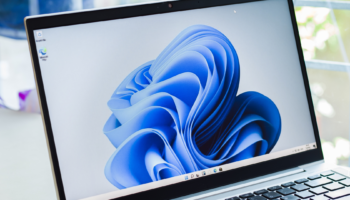Apple’s iPhones are widely regarded as significantly more secure than their Android counterparts, and a researcher has just demonstrated the glaring contrast between the two. While iOS appears to have won, it was not without flaws.
Ernestas Naprys, a journalist at Cybernews, an online organization that identifies and reports on cybersecurity dangers and vulnerabilities, carried out an experiment by installing the top 100 apps in the German App Store on a new iPhone and a new Android phone. He then kept the gadgets idle and recorded how frequently they accessed overseas servers and where they were situated.
Naprys idled the Apple phone for five days and “traced every outgoing connection the iPhone made to external servers.” Interestingly, it sent out an average of 3,308 queries every day, compared to 2,323 for Android.
However, if you believe it makes Android a superior choice for your privacy, think again. Although it sent out more queries, the iPhone was significantly more selective about where those requests were made. In reality, Apple received 60% of the iOS requests, accounting for a significant amount of the outgoing traffic. On Android, only 24% of requests went to Google, with the majority going to third-party applications.
For example, while iOS visited a Russian server once a day on average, the Android smartphone did so 13 times more frequently, for a total of 39 times over three days. In China, the iPhone never contacted any servers, despite having multiple Chinese apps installed. The Android smartphone, in comparison, Chinese servers were pinged an average of five times every day.
Apple’s iPad also outperformed services that are known to have a poor approach to user privacy. For example, the iPhone contacted Facebook servers 20 times per day on average, whereas Android did so nearly 200 times each day. TikTok was contacted 36 times in total on iOS, and even then, it reached a ByteDance server that was not in China, whereas the Android smartphone pinged TikTok approximately 800 times.
What does all of this mean?

If an app contacts a server in a country such as Russia or China, your data may be available to authorities or other agencies in those countries. Once the data has arrived in another country, it may come under the jurisdiction of that state.
Naprys argued that there could be various causes for the disparity in how open iOS and Android are. For starters, “Not a single app on the Apple App Store could be considered as blatant adware,” Naprys noted. “All the apps on the App Store represented big platforms behind them and were more useful than ad-powered flashlights, prank generators, or dubious PDF viewers on Google Play.”
possibly to be noted is that “this may also be due to stricter Apple policies for developers in its closed ecosystem regarding privacy in general.” Apple has numerous controls in place to limit the data that developers can access, and it has expressed concern that opening up its ecosystem may be disastrous for security.
So, while neither iOS nor Android received perfect scores, it’s evident that an iPhone will make fewer requests to problematic locations than an Android device. If you value your privacy, take attention.






